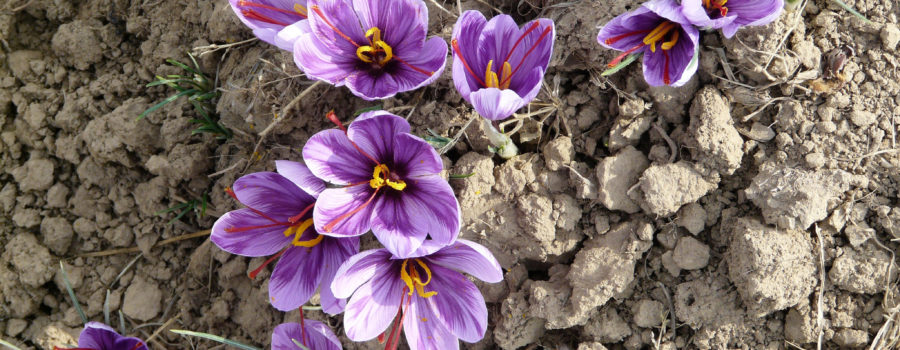The prospect of entering paradise arouses warm emotions and a yearning as natural as the love we have for the Beloved. But to think that He, the creator of all beauties, is working in us to create a paradise for Himself—a private garden where He longs to dwell forever—is indeed awe-inspiring.
If Zion is referred to as the ‘perfection of beauty’ (Psalm 50:2), surely the bride of Song of Songs is nothing less than the beauty of perfection. The Apostle Peter, aware of the divine purpose writes:
But may the God of all grace, who called us to His eternal glory by Christ Jesus, after you have suffered a while, perfect, establish, strengthen, and settle you” (1 Peter 5:10).
God is a perfectionist, and when He will be done with it His garden will be a paragon of beauty.
A garden enclosed s my sister, my spouse, a spring shut up, a fountain sealed. Your plants are an orchard of pomegranates with pleasant fruits, fragrant henna with spikenard, spikenard and saffron, calamus and cinnamon, with all trees of frankincense, myrrh and aloes, with all the chief spices—a fountain of gardens, a well of living waters, and streams from Lebanon.” (Song of Solomon 4:12–15)
Truly little could be improved here. It is beauty refined. The eye is being charmed, the nose enraptured, the palate delighted and the sense of touch gratified. The work is not only magnificent, but also overwhelming.
Saffron
The fourth plant the Beloved mentions, while comparing the bride to a garden, is the saffron (Crocus sativus). The saffron crocus grows to 20–30 cm (8–12 in) and bears up to four flowers. It grows in direct sunlight and is used to produce the most expensive spice in the world as well as a highly appreciated perfume. One kilogram costs about ten thousand Euros (over ten thousand dollars). About 150 saffron flowers are needed to produce one gram of spice. Put another way, 80,000 flowers (240,000 stigmata!) are needed to produce half a kilo of the final product (a bit more than one pound). These stigmata are separated from the flower by hand. No wonder saffron is so expensive.
The saffron is not only used to produce a high quality perfume or the most expensive spice in the world. It is also used for aesthetics in garden designs and food. The flower is beautifully blue, its stamens are bright yellow and its stigmata vivid red. As far as art is concerned the plant is a masterpiece. The spice—produced through the red stigmata—colors the food yellow, which gives an exotic and appealing look to the dishes so produced.
The importance of small things
There are a few lessons we can learn from the saffron. The first one is that the very best is often discovered in very small thing, i.e., things that never grow big. “For who has despised the day of small things?” (Zechariah 4:10) is a question still relevant today. For as it was then, so it is now: small things are easily overlooked or even despised.
The Christian who wants to grow saffron in his garden will have to be meticulous. He will have to give importance to the entities God considers important, and this, regardless of their size or degree of popularity. Such inclinations as ‘showing off’ will have to be tamed and subdued to more decisive aspirations. Strictly speaking, the motives will have to be sanctified.
Seasons and beauty
Another important lesson we can learn from the saffron is the importance of patience. Most flowers blossom in springtime or early summer. In contrast, the saffron blooms in autumn. When most plants reach glory the saffron is still unattractive and plain, disappearing in the background. Yet it does not fret itself. And far from envying other plants, it enjoys the beauty they offer from the surrounding hills.
The popular mania of comparing oneself with others—so common in human hearts—is as deadly as useless (2 Corinthians 10:12). It has wreaked havoc ever since Adam was put in Eden, and it continues to ravage hearts and minds. To the person enraptured by the comeliness of the Lover the claws of comparison are strangely weakened. For he knows where he stands and has little need of human approbations. The presence of the Beloved has so overwhelmed him that his eyes have departed from the crowd to be fixed on the One better than ten thousand (Song of Songs 5:10). In such a heart the blue flower will bloom, yielding the product of love and passion.
The saffron teaches us also that nothing should come between the Son and us. For the crocus does not thrive in shady conditions. The rays of providence must reach it or else no flowers will bloom.
A seed for meditation
The Beloved desires saffron in His paradise. His Hand is at work and His Son shining forth. What a recomforting thought to the meditative mind; to know that the provision of grace is there for whosoever will lookup and worship. “Let patience have her perfect work” (James 1:4) is a counsel proceeding from Wisdom, addressed to the prudent in heart, and surely he that has understanding will give heed and experience splendor.
(Photo attribution Dr PS Sahana * Kadamtala Howrah—The text has been added to the original photo)
If you think this post can help somebody else you can share it with the options presented bellow.













